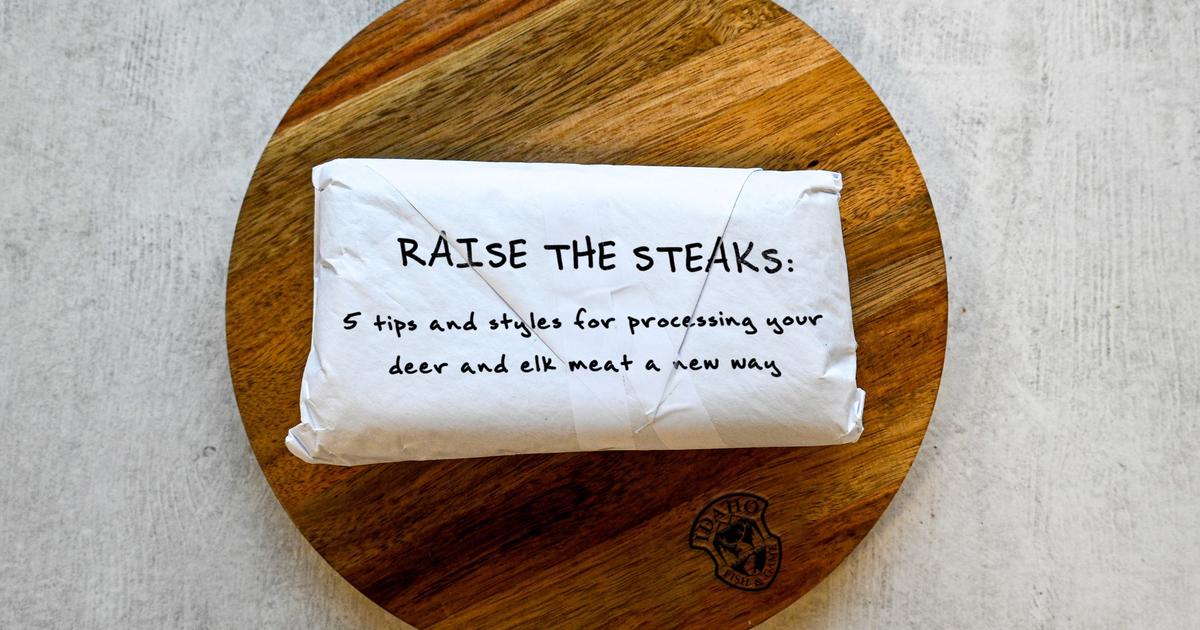
5. Last but not least: Jerky
Ever the crowd-favorite, making jerky can be a fairly simple process and doubles as a reward when your stomach starts growling 4 miles from the truck. Jerky easily finds a home in your hunting pack and stays edible for a long time (if frozen).
The key with making jerky lies in the thinness of the meat. You’ll want to thinly slice the larger chunks of meat into strips. Then, you soak the slices in a marinade for several hours or overnight, before smoking or drying them.
Drying is most commonly done in a food dehydrator, but smokers or even your oven at its lowest setting with the door open ajar can do the job just find. The key is just low, low heat for a long, long time.
There are many jerky recipes available in cookbooks or the internet. Remember when making jerky the pieces should be dry, but still supple. Too dry and it will be brittle and crunchy, which is overcooked. Although jerking is a method of preserving, it’s still best to store it in the refrigerator or freezer.
FUN FACT: No, the word “jerky” does not get its name from the act of ripping dried meat with your teeth. Instead, the word comes from the Quechuan (Incan) word ch’arki, meaning “dried flesh,” and didn’t come into the American English vocabulary until 1850.
More tips for processing game meat
- Pay attention to sanitary guidelines and cooking temperatures. Use a meat thermometer to ensure meat has reached the proper temperature when smoking or drying.
- You know what flavors you like and dislike, so learn the basics of a recipe and adjust to suit your tastes. Don’t be afraid to experiment.
- If it’s your first attempt with a new recipe, start with a small batch. If it doesn’t turn out how you like, you can change it for your next batch.
- If you’re making patty sausage, cook some as soon as it’s done. Put a small, thin patty in an oiled frying pan, cook it a few minutes and taste it, then add more seasoning if needed.
- When freezing, don’t put too much meat into one package. Aim for each package to hold enough for one meal.
- Take advantage of prepackaged seasoning mixes. They take a lot of the hassle out of figuring out which spices to use and how much, and many are created for wild game, not domestic meats.
- Get a kitchen scale that will weigh about 10 pounds of meat. It will ensure you get the right ratio of game meat to pork, pork fat, or beef fat.
